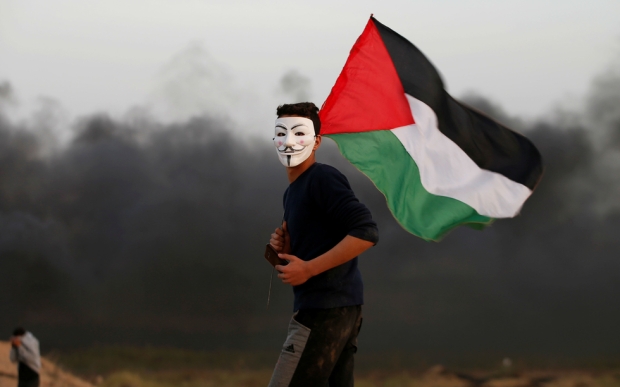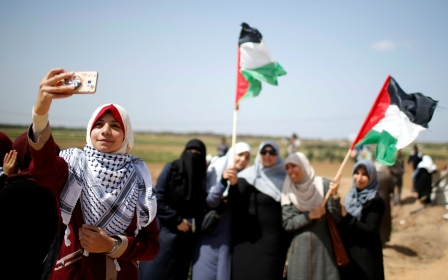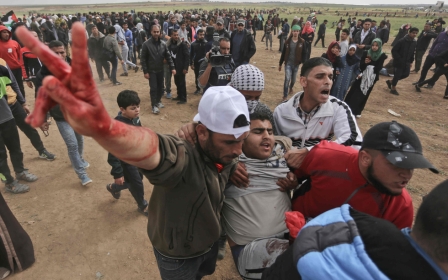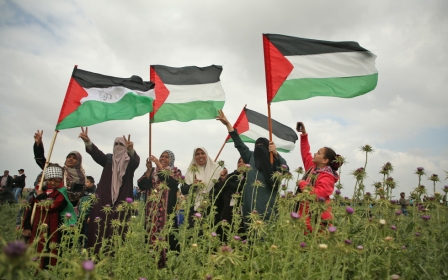Israel keeps 'open-fire' rule as Gaza braces for more mass protests
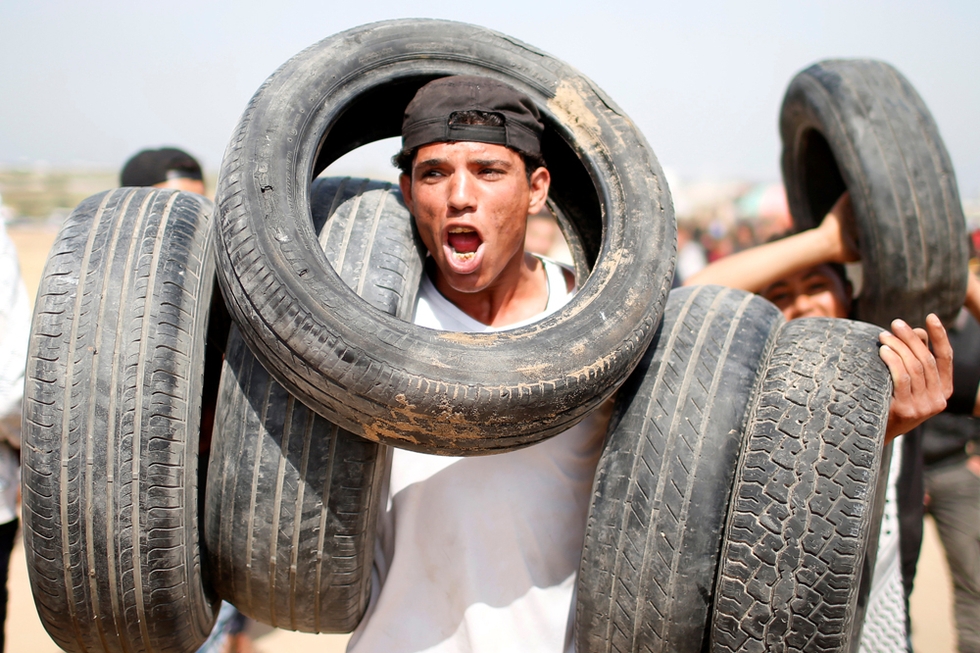
Israel says there will again be a "reaction of the harshest kind" if there are "provocations" along the Gaza border on Friday, after a week in which 18 Palestinians were killed in protests demanding the right to return.
The Israeli defence minister, Avigdor Lieberman, said on Thursday that "open-fire rules for the Gaza border will remain unchanged".
"If there are provocations, there will be a reaction of the harshest kind like last week," Lieberman, a Moldovan-born Israeli, told public radio.
His comments come as Palestinians prepare for a second Friday of mass demonstrations in what Palestinians are calling the "Great March of Return".
A total of 22 Palestinians have died on Gaza's border since the protests were launched - 17 were shot by Israeli soldiers on Friday, two others killed in shelling, and two more have died since last Friday, including one killed in an air strike early on Thursday. One protester injured in last week's protests died on Friday morning.
Organisers of the protests have set up a tent city with media posts, portable toilets, electricity and water supplies, and shaded areas for crowds in five locations near the border fence that separates Israel from the Gaza Strip.
More than 1,400 were wounded, 757 of them by live fire, with the remainder hurt by rubber bullets and tear gas inhalation, according to the health ministry in Gaza.
Palestinians are intending to use reflective mirrors and the smoke from burning tyres to distract Israeli snipers and infantry brigade troops from targeting the crowds with live ammunition.
Palestinians have nicknamed this Friday's protest "Jum'at al-Kawshook", literally meaning "Tyres Friday".
The Hamas movement said on its official website on Thursday that it has supported the families of those killed and injured last Friday with financial aid.
"[This is] in light of the difficult economic conditions experienced by our people in the Gaza Strip as a result of the continued Israeli siege," the statement said.
Hazem Qasem, Hamas's spokesman, said that the movement "supported" the families of each Palestinian who was killed with $3,000, while families of those severely injured were given $500 each, and those lightly injured were given $200 each.
Human Rights Watch said Friday's killings were unlawful and "calculated", also saying the border protests posed no immediate threat to Israeli soldiers.
Israel has rejected calls from the EU and UN for an independent investigation into the killings, saying its soldiers opened fire when necessary to prevent attacks, attempts to damage the fence and infiltrations.
The Israeli army was unable to confirm how many live rounds were fired by its snipers after claiming to know on Twitter where "every bullet landed in Gaza", before deleting the tweet.
Palestinians say protesters were fired on while posing no threat to soldiers, and that they were 700 to 1,000 metres away from the border fence, where Israeli snipers and infantry brigades were stationed behind man-made sandy hills.
'Right of return'
The protests come on the heels of months of anger over US President Donald Trump’s decision to move the American embassy to Jerusalem, largely perceived as the United States rejecting Palestinian claims to East Jerusalem as their capital as part of a two-state solution.
In the Gaza Strip, almost 1.3 million of the small territory’s two million inhabitants are refugees, demanding their right to return to their pre-1948 homes, which Israel refuses.
The Great March of Return also comes as part of Palestinian refugees' continuous demands for the full implementation of the United Nations General Assembly Resolution 194 of December 1948, which stipulates that “the refugees wishing to return to their homes and live at peace with their neighbours should be permitted to do so at the earliest practicable date”.
Israel has maintained a blockade on Gaza for more than a decade, arguing that it is necessary to isolate Hamas, with whom it has fought three wars since 2008.
UN officials and rights groups say the blockade amounts to collective punishment of the coastal strip's two million residents.
The organisers of the march anticipate that Israel will portray the protests as violent and Hamas-sponsored. They have stressed its peaceful character and commitment to civil disobedience.
The protests are expected to continue until 15 May, which marks the 70th anniversary of the Palestinian Nakba (Catastrophe), in which more than 750,000 Palestinians were forcibly displaced by Israeli forces in 1948 Arab-Israeli war.
Middle East Eye propose une couverture et une analyse indépendantes et incomparables du Moyen-Orient, de l’Afrique du Nord et d’autres régions du monde. Pour en savoir plus sur la reprise de ce contenu et les frais qui s’appliquent, veuillez remplir ce formulaire [en anglais]. Pour en savoir plus sur MEE, cliquez ici [en anglais].


